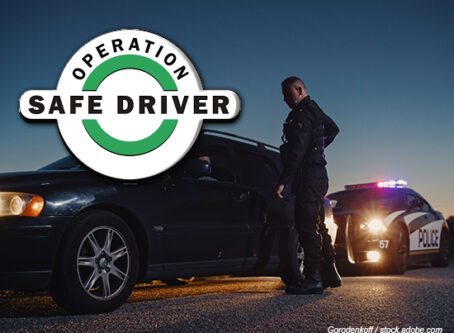Damages related to truck crashes topic of new state laws
Multiple states have taken this year to address concerns about rules that relate to pain-and-suffering damages in incidents involving large trucks.
Louisiana
The Louisiana Legislature has approved two measures to address reforms to the state’s civil justice system. Gov. Jeff Landry signed one bill and vetoed the other.
The governor signed into law a bill to repeal the state’s direct-action statute. It takes effect Aug. 1.
Existing law gives a plaintiff the right to direct action against an insurer alone or against the insured and insurer jointly.
Previously HB337, the new law limits situations when a plaintiff can name and assert a direct action against a defendant’s insurer.
Applicable situations for direct action include instances when the insured files for bankruptcy, when the insured is insolvent or when the insured is deceased. A court also will be prohibited from disclosing to the jury the existence of insurance coverage or mentioning coverage with the jury present.
Senate votes to repeal direct action #lalege pic.twitter.com/KoiuzI8YK0
— Jack McFarland (@RepMcFarland) May 8, 2024
Landry vetoed another legal reform effort. HB423 sought to limit trial damages. Only actual medical expenses of the injured party would be applicable.
The amount of medical expenses paid by collateral sources also would be limited.
The Louisiana Motor Transport Association described the bill as a pursuit to bring transparency to juries in the process of calculating past medical expenses.
In his veto message, the governor said the collateral source rule “is designed to ensure fairness and just compensation for injured parties in civil lawsuits.”
“There is no proof that any responsible Louisiana citizen who uses health insurance is being overpaid at trial,” Landry wrote. “The reality is that collateral source rule only impacts cases that are going to trial, and very few cases are actually going to trial these days.”
Indiana
A new Indiana law allows seat belt usage to be considered in accident lawsuits.
State law has prohibited seat belt information from being made available to juries.
Effective July 1, the rule will change to permit juries in civil lawsuits related to vehicle accidents to hear whether the victim was wearing a seat belt. The information then can be used when considering damages.
A judge will still have the final say on whether the information is allowed to be presented.
Rep. Jim Pressel, R-Rolling Prairie, said it is important that the state not stand in the way of juries’ access to information about whether a vehicle occupant was wearing a seat belt.
“It has nothing to do with fault. It has nothing to do with cause. It’s only to be used in damages,” Pressel previously told lawmakers.
The American Trucking Associations said reforms like the new Indiana law are critical to ensuring fairness and balance in the civil justice system.
Georgia
In Georgia, a new law in effect July 1 repeals nearly century-old direct-action statute that covered truck drivers.
The new rule is intended to help address the needs of truck drivers in the state. The action follows the recommendation of a special legislative panel on trucking.
In place since the 1930s, the state’s direct-action rule was a leading topic of the panel that gathered a year ago to discuss issues described as contributing to a truck driver shortage.
Georgia Insurance Commissioner John King was a participant during the panel discussion.
He told the group the rule that permits a plaintiff to take direct action against the responsible insurance company should to be repealed.
King said that Georgia does not allow any insurer to be named as a defendant in any other business except trucking.
“Only the trucking industry is subject to these kinds of requirements,” he testified.
Senate Majority Leader Steve Gooch, R-Dahlonega, said that the cost of insurance for truck drivers has risen so rapidly over the past few years it has put Georgia truckers at a competitive disadvantage with operations in other states.
The new law puts into place limits on lawsuits filed by individuals injured in truck-related incidents.
Sen. Blake Tillery, R-Vidalia, previously told lawmakers it was well past time to eliminate the state’s direct-action law.
“In our state, right now, you can directly sue an insurance carrier when it’s related to a common carrier. Most states have done away with that provision. Georgia has not,” Tillery testified.
The new rule largely eliminates the state’s direct-action law. Exceptions to the truck driver rule apply to instances when a trucking operation enters bankruptcy or the truck company cannot be located.
Gooch said the issue was a priority to get signed into law. In prepared remarks, he said he welcomed the “significant strides” that have been made to address the state’s “litigation environment through tort reform initiatives, such as the passage of legislation to limit direct-action lawsuits.”
Lt. Gov. Burt Jones also welcomed legislative action on the topic.
“With the passage of this bill, we are one step closer to providing Georgia’s growing business community the relief it needs,” Jones stated.
Wisconsin
Louisiana is not the only state this year to veto a lawsuit reform effort. Wisconsin Gov. Tony Evers vetoed truck insurance reform that was touted to counter nuclear verdicts.
The legislation, SB613, called for capping the total amount of noneconomic damages, such as pain-and-suffering, that a person may recover from a trucking company. A $1 million limit on noneconomic damages would apply to incidents with a truck that result in injury, death or other loss.
The bill did not limit direct damages, such as medical expenses.
In written testimony, Sen. Cory Tomczyk, R-Mosinee, wrote that the commercial trucking industry has seen an increase in large-scale litigation. He said his bill would address a rising problem by placing a reasonable cap on noneconomic damages.
Wisconsin Motor Carriers Association President Neal Kedzie previously told lawmakers the truck insurance legislation is about setting reasonable limits to curb the growing abuse of noneconomic damages.
Evers said he vetoed the bill for multiple reasons. First, he said he objects to “arbitrarily capping” noneconomic damages in tort actions involving a motor carrier.
“A fundamental principle in our legal system is that everyone is entitled to remedies in the law for all injuries, and when it comes to remedy, the law should redress a party’s injury, not repress an injured party,” Evers wrote.
The governor added that he was concerned the bill fundamentally violates constitutional principle “as well as equal protection guarantees and due process rights under the United States and Wisconsin constitutions.”
Doug Morris, OOIDA director of state government affairs, said the lawsuit abuse reform legislation was a commonsense bill.
“Once again, Gov. Evers has chosen trial attorneys over small business,” Morris said. LL
More Land Line coverage of state news is available.









